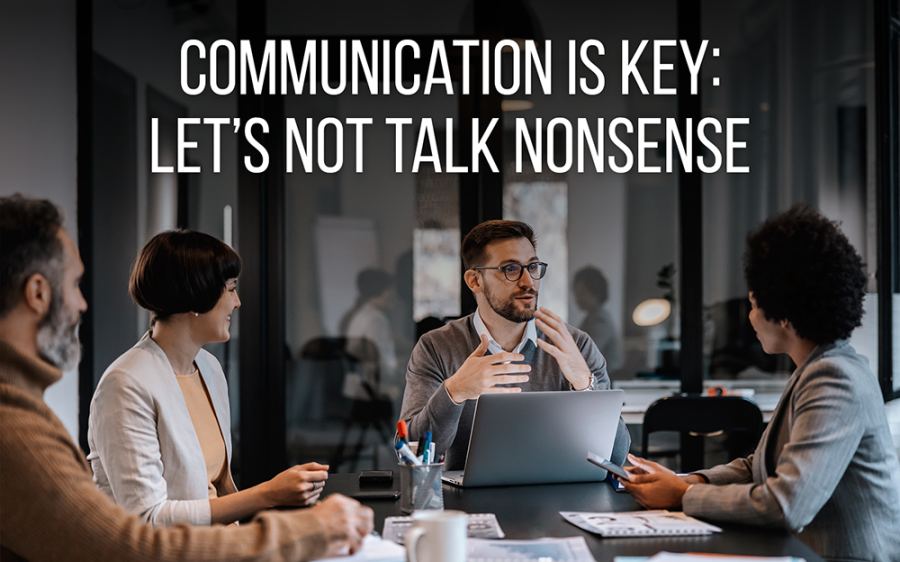
Blog
Communication is Key: Let’s Not Talk Nonsense

This is true for every business including economic development organizations. Though, I have always said everyone is in the economic development business; they just don’t know it.
What do I mean by nonsense? I’ll give you an example. I am currently working with a website company for a client of mine. The company wants my client to upgrade their services for an increase of their monthly fee. I agree with the plan but this company doesn’t communicate the benefits or tell the client exactly what they do to deserve my client’s business. The following sentence was included in the proposal.
“We’re always working to improve and insure that our clients have the best possible experience.”
What do they mean? How do they work to improve the client experience? How in the world do they “insure” that outcome?
Here are some other examples I’ve come across over time:
“Loaded with standard features” Honestly, I would hope so. This seems a very low bar.
“We hire real marketers that are great at their trade.” As opposed to hiring people who have no idea what they are doing and awful at their jobs. Like, maybe the people that wrote this sentence.
“We treat our clients like family.” Nobody believes this.
“First, we create an “equilibrium between price and value”℠ for client media investment, so our clients buy media smarter. Then, our process and culture, defined by Technology and Tenacity℠ cuts through clutter, and media-industry B.S. to nimbly execute global media strategy.” I have no idea what they are saying. This is actually an example of “media-industry B.S.”
“&CARR: It’s not just a name—it’s our culture. The space before the ampersand is time spent listening, learning and understanding. Because it’s not about us. It’s about You&Carr.” They may have thought this was clever, but it’s just annoying.
Even though communication may be coming from an entity like a business, the business can still talk like a normal person. When talking or writing to stakeholders, customers, or clients, we need to be specific, honest, and real. No one has the time or the patience for anything else.
Another thing to remember is the need to know your audience. A defense contractor talking to another defense contractor can use acronyms all day long and be understood. Other kinds of businesses will be lost in the sea of acronyms the military uses.
Instead of trying too hard to stand out from the competition by trying to be too clever, try telling it like it is. Respect the intelligence of your audience. They will appreciate it and you will stand out.
Kelly Murphy Redd, CEcD, Murphy Redd Marketing
